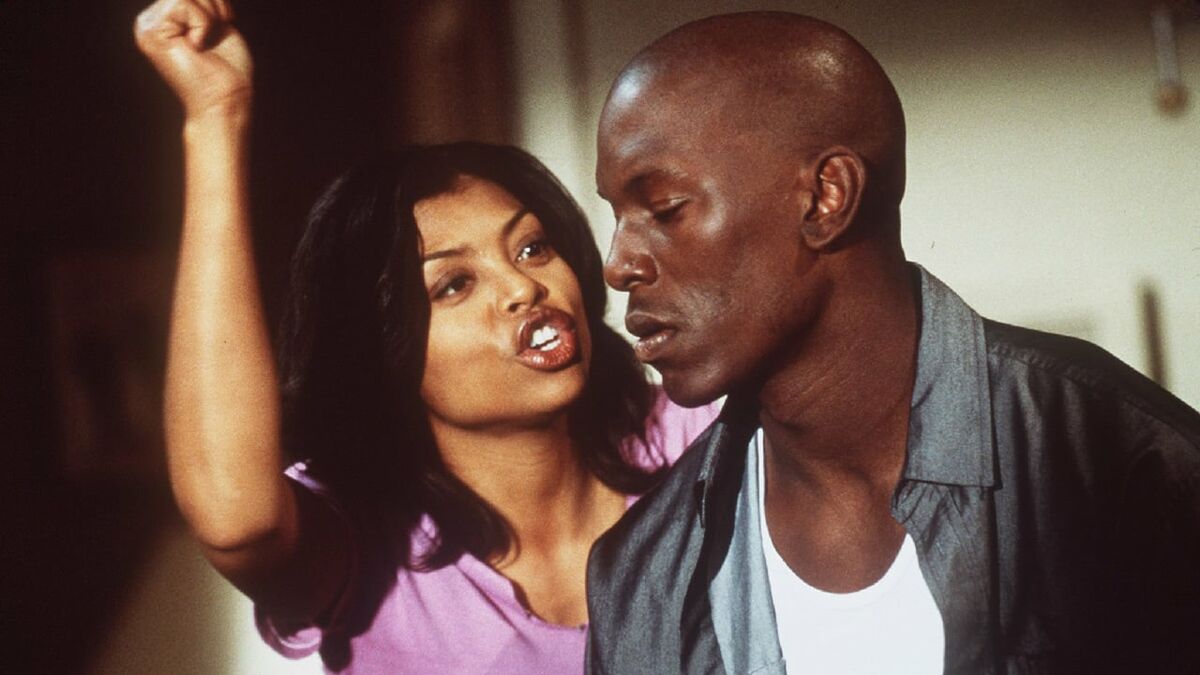Baby Boy: A Raw Exploration of Manhood, Family, and Survival
John Singleton’s Baby Boy (2001) is a powerful drama that delves into the complexities of growing up, responsibility, and the harsh realities of urban life in South Central Los Angeles. Known for his groundbreaking work on Boyz n the Hood, Singleton revisits similar territory but with a sharper focus on the struggles of an adult man who has yet to fully step into maturity. The film is both intimate and socially charged, offering a portrait of manhood that is often messy, conflicted, and shaped by an environment marked by violence, poverty, and fractured families.
At the center of the story is Jody, played by Tyrese Gibson in his first major film role. Jody is a 20-year-old man who still lives with his mother, Juanita (A.J. Johnson), and is caught between adolescence and adulthood. He is unemployed, spends much of his time lounging at home, and is resistant to the idea of responsibility. Jody also struggles with fatherhood, as he has two children by different women but shows little commitment to either relationship. His main partner, Yvette (Taraji P. Henson in one of her breakthrough roles), demands stability and loyalty, but Jody continues to betray her trust with infidelity and immaturity.

The film’s narrative tension grows when Juanita begins a new relationship with Melvin (Ving Rhames), a reformed gangster who moves into their home. Jody sees Melvin as a threat and resents his presence, but Melvin also becomes a catalyst for Jody’s transformation. Their relationship swings between violent clashes and moments of reluctant respect, reflecting a generational struggle between men defined by survival instincts and the hope of stability.
One of the film’s strengths lies in Singleton’s ability to balance raw emotion with cultural commentary. Baby Boy is not just a story about one man’s refusal to grow up; it is also a broader reflection on the cycles of broken homes, absent fathers, and systemic obstacles that impact many Black families in America. Singleton uses dialogue and symbolism—such as Jody’s repeated references to being “a baby boy” despite being an adult—to emphasize how difficult it is to break free from immaturity and dependency in such an environment.
The film also shines through its performances. Tyrese Gibson brings a mix of vulnerability and arrogance to Jody, making him both frustrating and sympathetic. Taraji P. Henson delivers a fiery, emotional portrayal of Yvette, showcasing the resilience and pain of a woman who loves a man struggling to grow. Ving Rhames adds gravitas as Melvin, embodying both menace and wisdom. These performances, combined with Singleton’s direction, give the film an authenticity that resonates deeply.
Visually, Baby Boy captures the vibrant yet harsh realities of South Central Los Angeles. From cramped apartments to neighborhood hangouts, the setting grounds the story in a recognizable environment where hope and despair coexist. Singleton’s soundtrack, featuring artists like Snoop Dogg and Tyrese himself, further enhances the cultural texture of the film, connecting it directly to the music and voices of the community it portrays.
In the end, Baby Boy is a story about transformation. Jody’s journey from irresponsibility to a reluctant embrace of manhood is messy and incomplete, but it represents growth. Singleton does not glamorize street life or offer easy solutions; instead, he presents a realistic portrait of a man learning, often painfully, that love, responsibility, and family are at the heart of survival.
More than two decades after its release, Baby Boy remains a poignant, unflinching exploration of manhood and identity. It stands as one of Singleton’s most personal films and continues to resonate with audiences for its honesty, rawness, and emotional depth.
-1751939894-q80.webp)
-1754374824-q80.webp)